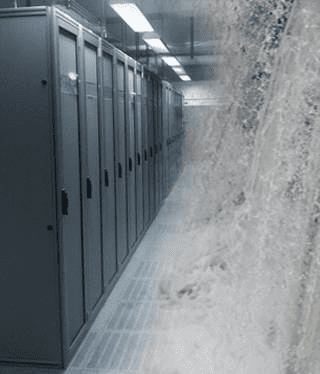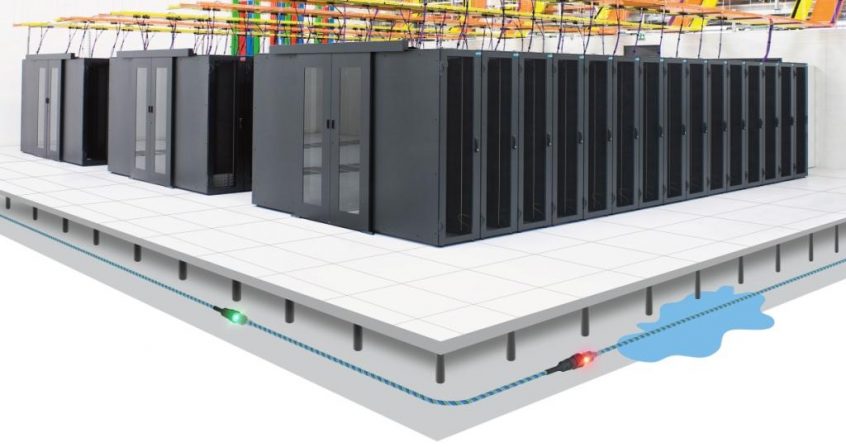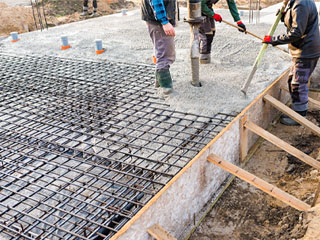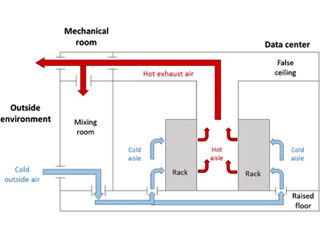Water leaks in data centers can lead to catastrophic failures, damaging servers and equipment, causing downtime, and resulting in massive revenue losses. In this article, we delve into the reasons why water leak detection is crucial for data centers, explore the risks associated with water damage, and provide insights into effective prevention strategies.
In April 2023, Google Europe was knocked offline. The cause? A fire, started by a water leak. A cooling system pump failed, and water entered the battery room sparking a fire.
Why Water Leak Detection Matters in Data Centers
- Avoiding Structural and Property Damage: Water leaks can compromise the structural integrity of data center sites, leading to costly repairs and mold growth. Vigilant water leak detection is essential to prevent these structural issues and associated expenses.
- Protecting Equipment from Water Damage: Undetected leaks from various sources, such as HVAC units, water pipes, and drainage, can harm critical data center equipment. Timely identification of leaks can save repair costs, and more importantly downtime.
- Efficient Time Management: Identifying water leaks can be challenging, often leading to unnoticed pooling and damage. Water leak detection systems promptly locate leaks throughout the facility, preventing the need for time-consuming trial-and-error methods. AKCP Locate type rope water sensors are ideal for this.
- Preventing Business Interruption: Even minor leaks can disrupt servers and IT gear, impacting business operations. Detecting and addressing leaks promptly safeguards against business interruptions and potential revenue loss. Gartner estimates downtime in an unprepared data center to run at a cost of $5,600 per minute. This is in excess of $300k USD per hour. A small investment in an effective monitoring solution can be paid for many times over with one such event.

Water Leak Hazards and Their Consequences
- Air Conditioning Drips: Leaks from AC systems can lead to data center flooding, causing severe damage to equipment. Spot water sensors nearby drip pans can be deployed.
- Coolant Leakage in Water-Cooled Server Racks: Water-cooled server racks can experience leaks that jeopardize data center operations. Rear door heat exchangers can be particularly susceptible to this. Simon Fraser Data Center implemented AKCP rope water leak detection sensors for their rear door heat exchangers.
- Condensation from Air Conditioning Units: Poorly maintained air conditioning systems can lead to unexpected leaks and water damage.
- Architectural Flaws and Burst Pipes: Structural issues such as burst pipes, damaged heating pipes, and overflowing toilets can result in water damage.
- Sprinkler Leakage: Sprinkler systems designed to extinguish fires can inadvertently cause water damage if not properly maintained.
- Groundwater and Weather Damage: Architectural weaknesses can allow water infiltration during storms, leading to damage.
- Vandalism-Related Water Damage: Vandalism leading to water valve tampering can cause significant damage to data centers.
Water Leak Detection Systems: What You Need to Know
Water leak detection systems consist of sensors, shut-off valves, and a centralized hub. Systems, such as those from AKCP can monitor for water leaks, raise alarms via e-mail and SMS, activate a siren and strobe, actuate valves to shut off water trigger relays and circuit breakers to shut down power.
Conclusion
The potential consequences of water damage in data centers are far-reaching, affecting equipment, operations, and revenue. By implementing water leak detection systems, businesses can proactively safeguard against water-related disasters, preventing costly downtime and structural damage. The importance of this precautionary measure cannot be overstated, making it a vital investment for the longevity and success of data center operations.
For more information and inquiries, please contact us at: [email protected]






